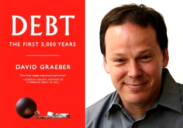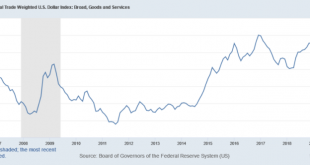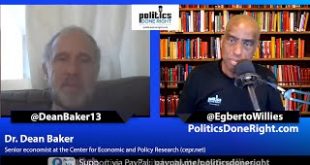from Lars Syll In econometrics one often gets the feeling that many of its practitioners think of it as a kind of automatic inferential machine: input data and out comes causal knowledge. This is — as Joan Robinson once had it — like pulling a rabbit from a hat. Great — but first you have to put the rabbit in the hat. And this is where assumptions come in to the picture. The assumption of imaginary ‘superpopulations’ is one of the many dubious assumptions used in modern econometrics, and...
Read More »Time to end patent monopolies
from Dean Baker For several years the opioid crisis has been recognized as a major national catastrophe. Millions of people have become addicted to the new generation of opioid drugs. In many cases, this addiction has led to the destruction of families, job loss, crime, and suicide. At the peak of the crisis in West Virginia, the hardest hit state, the death rate from overdoses alone, was more than 41 people per 100,000. This is more than 70 percent of its fatality rate from the...
Read More »Christmas, Greece, 2020
Differentiating social, market, and government debts
from Asad Zaman In a previous post on “ABC’s of MMT”, I explained the basics of MMT as a preliminary to a critique of Raghuram Rajan’s article on “How Much Debt is Too Much?”. A significant part of the discussion on this post consisted of debates over words and their meanings. My use of words like assets, savings, wealth, liability, and debt was contested, and alternative usages were offered. It seems necessary to pause for a discussion of these terminological confusions, prior to going...
Read More »Why everything we know about modern economics is wrong
from Lars Syll The proposition is about as outlandish as it sounds: Everything we know about modern economics is wrong. And the man who says he can prove it doesn’t have a degree in economics. But Ole Peters is no ordinary crank. A physicist by training, his theory draws on research done in close collaboration with the late Nobel laureate Murray Gell-Mann, father of the quark … His beef is that all too often, economic models assume something called “ergodicity.” That is, the average of...
Read More »Merry Christmas and a happy…
What can RCTs tell us?
from Lars Syll We seek to promote an approach to RCTs that is tentative in its claims and that avoids simplistic generalisations about causality and replaces these with more nuanced and grounded accounts that acknowledge uncertainty, plausibility and statistical probability … Whilst promoting the use of RCTs in education we also need to be acutely aware of their limitations … Whilst the strength of an RCT rests on strong internal validity, the Achilles heel of the RCT is external validity...
Read More »Bloomberg is concerned that Janet Yellen’s dollar policy may lessen wealth inequality
from Dean Baker You don’t have to look far, it’s literally the first sentence in a Bloomberg piece on dollar policy under incoming Treasury Secretary Janet Yellen. “Janet Yellen once touted the benefits of a weaker greenback for exports, but as the incoming Treasury secretary, she faces pressure to return the U.S. to a “strong-dollar” policy — and may cause trembles on Wall Street if she doesn’t.” For folks who don’t know, the vast majority of U.S. stock is held by the richest 10 percent...
Read More »Economist Dean Baker exposes pharmaceuticals, Fox News caves, Pundit on autocrat Trump, more
This is my description of the video --- Join this channel to get member's only live streams & other perks: https://bit.ly/3nnJ8TZ --- #PoliticsDoneRight --- **Follow Our Work (Subscribe/Like/Follow): ► Twitter: https://twitter.com/egbertowillies (@egbertowillies) ► Instagram: https://instagram.com/ourpoliticsdoneright (@ourpoliticsdoneright) ► YouTube: https://youtube.com/egbertowillies ► Facebook: https://facebook.com/politicsdoneright ► Facebook: https://facebook.com/egbertowillies...
Read More »Economist Dean Baker, Ph.D., discusses why COVID-19 vaccines may be denied to many around the world
The worldwide distribution of the COVID-19 vaccines exposes the immorality of our current economic system. Dr. Dean Baker sheds important light. --- Join this channel to get member's only live streams & other perks: https://bit.ly/3nnJ8TZ --- #DeanBaker #COVID19 #Vaccine #PoliticsDoneRight --- **Follow Our Work (Subscribe/Like/Follow): ► Twitter: https://twitter.com/egbertowillies (@egbertowillies) ► Instagram: https://instagram.com/ourpoliticsdoneright (@ourpoliticsdoneright) ►...
Read More » Real-World Economics Review
Real-World Economics Review










